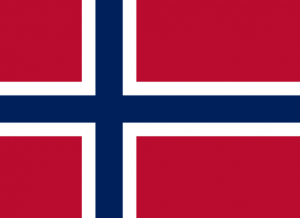Language/Norwegian-bokmal/Culture/Etiquette-and-Social-Norms
| ◀️ Holidays and Celebrations — Previous Lesson |
Introduction
In this lesson, you will learn about common etiquette and social norms in Norwegian society. At times, Norwegian culture can seem quite different from that of other countries. In order to avoid misunderstandings and to adjust to social norms, it is important to understand the cultural norms of Norwegian society. As with any culture, some of these norms may vary with different regions, but we will focus on the general Norwegian customs and traditions.
Consider exploring these related pages after completing this lesson: Bouvet Island Timeline & Contemporary Norwegian Bokmål culture.
Meeting and Greeting
When meeting someone, Norwegians often greet each other with a handshake and saying, "Hei" (Hi) or "Hallo" (Hello). When speaking to someone who is older, it is common to add "Herr" (Mr.) or "Fru" (Ms.) before their last name. Norwegians generally value punctuality, so it's important to arrive on time for any appointments. If you are going to be delayed, it is considerate to call or send a text message to inform the person you are meeting.
Personal Space and Touching
Norwegians value their personal space, so it's important to keep a comfortable distance when speaking to someone. Body language is also a way Norwegians express their personal space: they tend to stand at a slight distance when talking with someone. Touching is usually reserved for close friends and family members. It's important to take this into consideration, especially when greeting someone for the first time.
Eye Contact
Eye contact is very important in Norwegian culture. It's a sign of respect and interest. When speaking to someone, it's expected to maintain eye contact. However, it's important not to stare, as that can be seen as aggressive or confrontational.
Dress Code
Norwegians tend to dress conservatively and functionally. When it comes to formal occasions, conservative clothing is the norm. It is common for men to wear suits and ties, and women wear dresses or suits. For less formal occasions, Norwegians often dress in casual wear such as jeans and comfortable shoes. In general, it's important to dress appropriately for the occasion, especially for important events.
Dining Etiquette
Dining etiquette is an important part of Norwegian culture. When invited to someone's home for a meal, it's customary to bring a small gift, such as flowers or chocolate. It's also important to remove your shoes before entering a Norwegian house. At the dinner table, it's customary to wait for the host to invite everyone to start eating. After the meal, it's polite to help clean up and offer to do the dishes. Norwegians do not usually leave a tip in restaurants, but it is not inappropriate to do so.
Work Etiquette
Norwegians value their work-life balance and often prioritize their personal time. This means that it is important to finish your work during your designated work hours. Overtime is not common in Norwegian culture, unless it's of utmost importance. Norwegians tend to be direct communicators and value straight-forwardness. It's important to be open and honest when communicating with colleagues and superiors. If you are unsure about something, it's perfectly acceptable to ask for clarification.
Gift Giving
Gift giving is an important part of Norwegian culture, especially during the holiday season. When choosing a gift, it's important to keep in mind the age, gender, and interests of the recipient. Flowers are a common gift for hostesses, and chocolates or wine are appreciated gifts for dinner parties. It's polite to open gifts in front of the giver to express your appreciation.
Conclusion
By understanding Norwegian etiquette and social norms, you will be better equipped to navigate Norwegian society. Norwegians are generally kind and welcoming people, and they appreciate visitors who show respect for their customs and traditions. Remember, cultural norms can vary from region to region, so it's always a good idea to talk to locals and do your research before traveling to a new area.
Impressive work on finishing this lesson! Explore these additional pages to enhance your understanding: Gender and sexuality & Holidays and Celebrations.
Other Lessons
- Holidays and Celebrations
- Western Norway
- Central Norway and Trøndelag
- Norwegian Bokmål cuisine
- Immigration and integration
- Bouvet Island Timeline
- Contemporary Norwegian Bokmål culture
- Norwegian Bokmål art, literature, and music
- Social norms and etiquette in Norwegian Bokmål speaking societies
| ◀️ Holidays and Celebrations — Previous Lesson |

